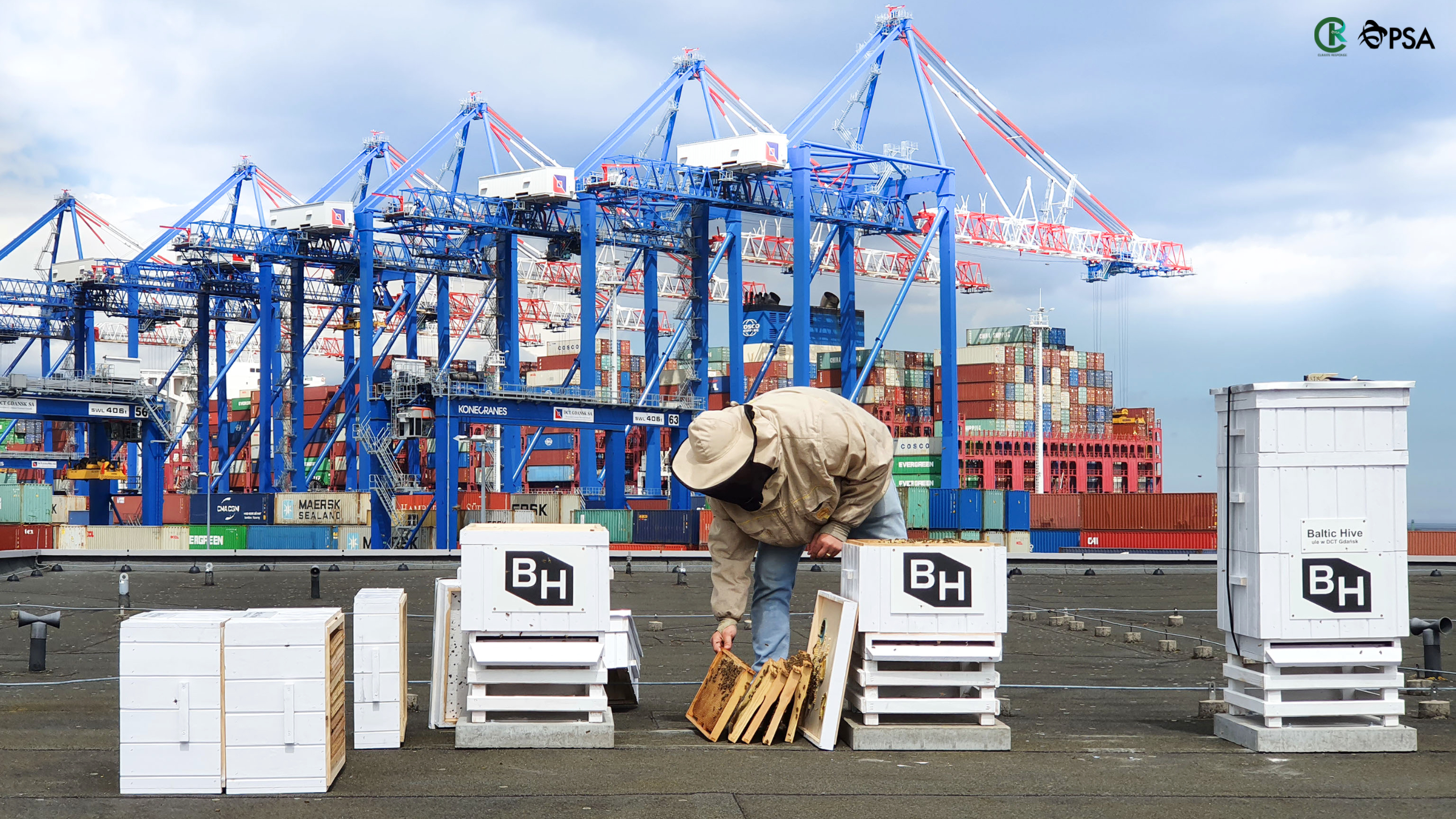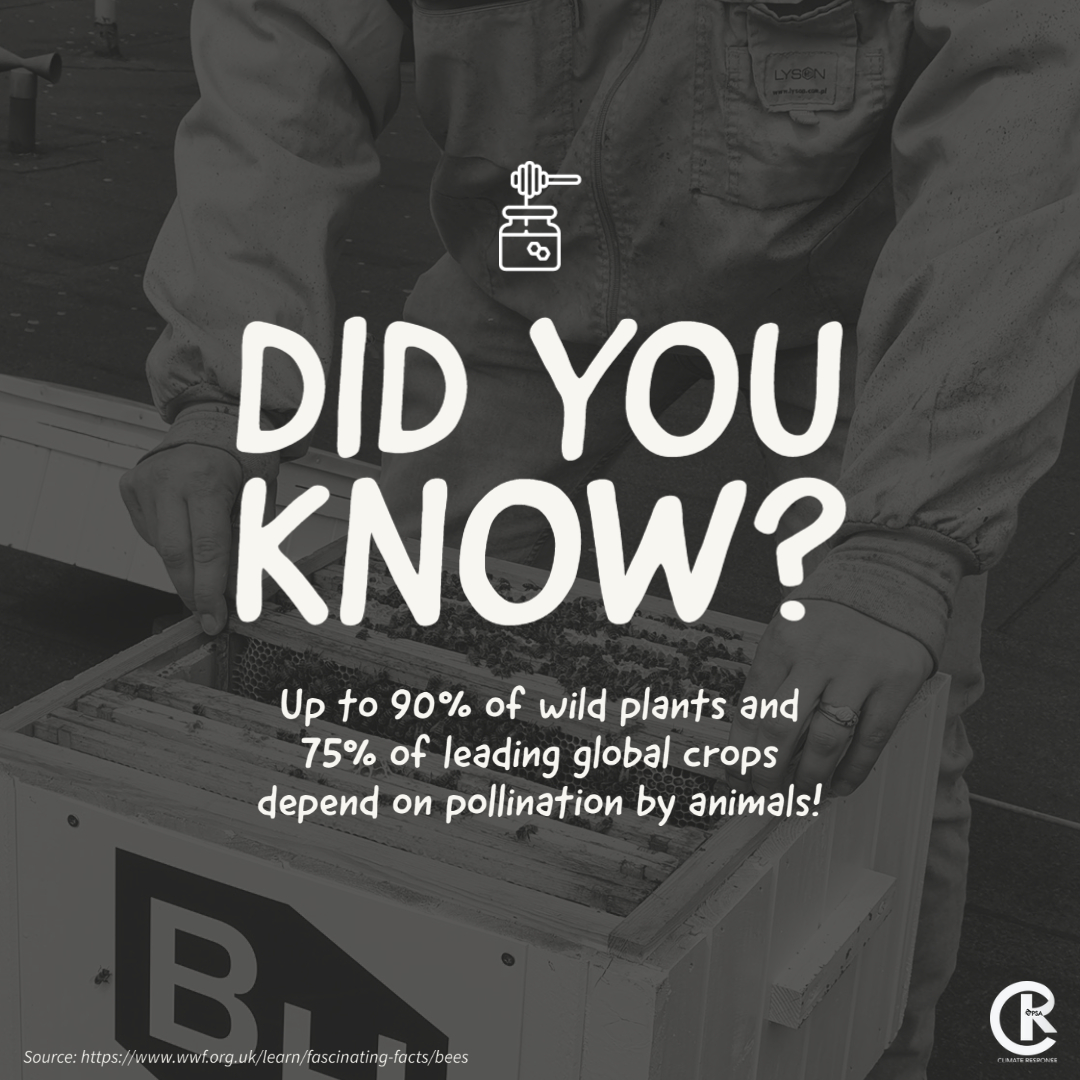A Baltic Hive in the Baltic Hub

Coinciding with World Bee Day in May 2021, DCT Gdańsk installed three beehives housing an approximate 90,000 bees on the roof of the DCT office building, creating a Baltic Hive in our Baltic Hub. It is estimated that by June, the bees can potentially increase to 300,000.
World Bee Day is initiated by the United Nations, to raise awareness of the importance of bees and other pollinators, the threats they face and their contribution to sustainable development. By carrying pollen from one flower to another, bees and other pollinators enable not only the production of an abundance of fruits, nuts and seeds, but also more variety and better quality, contributing to food security and nutrition. Today however, bees and other pollinators are declining in numbers, under threat from human activities.
To ensure the safety and wellbeing of the bees and community, Tomasz Wojtiuk, a beekeeper from BeeUp and a member of the Polish Beekeeping Association, will oversee DCT Gdańsk’s hives. He said, “Safety is the most important aspect. In the beginning, heavy paving slabs will be placed and fastened to the beehives with the use of appropriate belts. The idea is to keep the hives fastened and secure in one place even in the event of strong winds.”
The bees, jointly adopted by DCT Gdańsk and local apiary BeeUp, are of the Buckfast breed, originating in Buckfastleigh and first bred in the 1920s by Brother Adam – a monk dealing with apiaries in the English Buckfast Abbey. Buckfast bees are not only tame, but are also strong, hardworking and can produce large amounts of honey if properly managed.

The breeding of bees in cities is becoming increasingly popular in Western Europe, where thousands of beehives and apiaries are installed in various tourist locations. The presence of hives in the city is beneficial for both bees and the people residing there, allowing residents the chance to observe and commune up close with the critters.
For bees, the chances of survival in cities are now higher than in rural environments, due to the increased use of chemicals in agriculture, as well as the reduced sources of food that bees can draw pollen from due to the increased agricultural monoculture of crops. Comparatively, flora flourishes all year round in large cities where there are often large plots of unused land. From them, bees can readily collect pollen, which they later turn into propolis and nectar.
DCT Gdańsk CEO Cameron Thorpe said, “Our business should go hand in hand with caring for the planet,” adding that the company is proud to support the various ecological initiatives that aim to serve everyone. “We take environmental and business responsibility very seriously. Last year, we switched to using 100% renewable electricity, reducing our carbon emissions by half. We will continue to seek to reduce emissions, with the hopes that by 2050, DCT Gdańsk will be a zero-emission facility.”
To dive deeper into the importance of bees, watch this video here.
